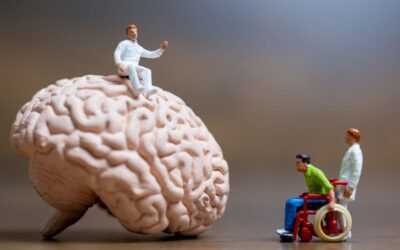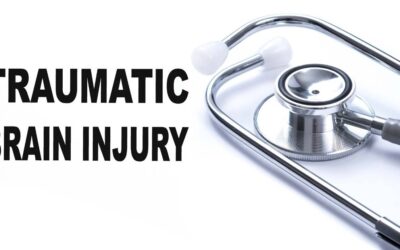What Types of Cognitive and Communication Problems Can Result From a Traumatic Brain Injury?
Cognitive and communication problems that result from traumatic brain injury vary from person to person.
These problems depend on many factors, which include an individual’s personality, pre-injury abilities, and the severity of the brain damage.
The effects of the brain damage are generally greatest immediately following the injury. However, some effects from traumatic brain injury may be misleading.
The newly injured brain often suffers temporary damage from swelling and a form of “bruising” called contusions.
These types of damage are usually not permanent and the functions of those areas of the brain return once the swelling or bruising goes away.
Therefore, it is difficult to predict accurately the extent of long-term problems in the first weeks following traumatic brain injury.
Focal Damage
Focal damage, however, may result in long-term, permanent difficulties.
Improvements can occur as other areas of the brain learn to take over the function of the damaged areas.
Children’s brains are much more capable of this flexibility than are the brains of adults. For this reason, children who suffer brain trauma might progress better than adults with similar damage.
In moderate to severe injuries, the swelling may cause pressure on a lower part of the brain called the brainstem, which controls consciousness or wakefulness.
Many individuals who suffer these types of injuries are in an unconscious state called a coma.
A person in a coma may be completely unresponsive to any type of stimulation such as loud noises, pain, or smells. Others may move, make noise, or respond to pain but be unaware of their surroundings.
These people are unable to communicate. Some people recover from a coma, becoming alert and able to communicate.
Problem To Concentrate
In conscious individuals, cognitive impairments often include having problems concentrating for varying periods of time, having trouble organizing thoughts, and becoming easily confused or forgetful. Some individuals will experience difficulty learning new information.
Still others will be unable to interpret the actions of others and therefore have great problems in social situations.
For these individuals, what they say or what they do is often inappropriate for the situation. Many will experience difficulty solving problems, making decisions, and planning. Judgment is often affected.
Language problems also vary.
Problems often include word-finding difficulty, poor sentence formation, and lengthy and often faulty descriptions or explanations. These are to cover for a lack of understanding or inability to think of a word.
Many have difficulty understanding multiple meanings in jokes, sarcasm, and adages or figurative expressions. Individuals with traumatic brain injuries are often unaware of their errors and can become frustrated or angry and place the blame for communication difficulties on the person to whom they are speaking.
Reading & Writing Abilities
Reading and writing abilities are often worse than those for speaking and understanding spoken words. Simple and complex mathematical abilities are often affected.
The speech produced by a person who has traumatic brain injury may be slow, slurred, and difficult or impossible to understand if the areas of the brain that control the muscles of the speech mechanism are damaged.
This type of speech problem is called dysarthria. These individuals may also experience problems swallowing. This is called dysphagia.
Others may have what is called apraxia of speech, a condition in which strength and coordination of the speech muscles are unimpaired but the individual experiences difficulty saying words correctly in a consistent way.



